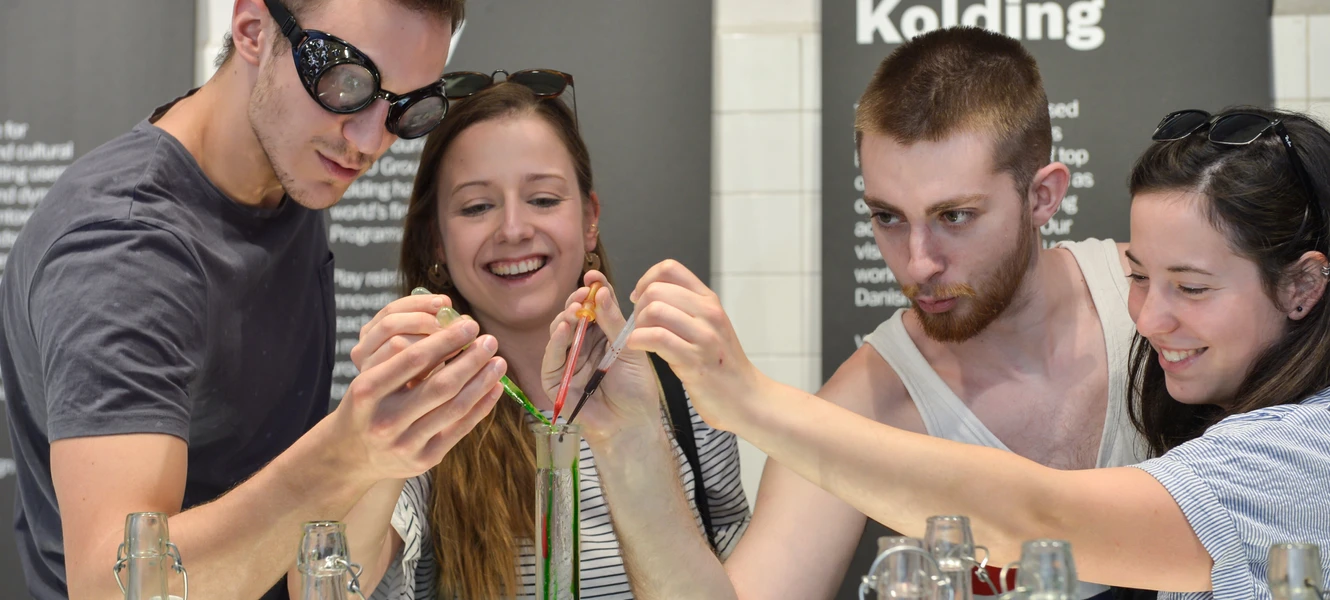
Design that leaves no one behind!
When in 2015 the UN announced the 17 Global Goals, they promised to ‘leave no-one behind’. A new collaboration between the Bevica Foundation and Kolding School of Design turns these words into action. The two parties have agreed upon a common goal to put Universal Design on the agenda for Kolding School of Design students to give all of them the opportunity to learn to design inclusively and for all.
- To us as a foundation it’s about people with impairments being able to live a life like everyone else. In order to achieve this we need to create a framework that allows everyone to unfold their potential. We’re surrounded by design every day. From products to experiences to services. We all need to be able to benefit from these designs. This value-based concept of Universal Design must become a natural mindset for students and a lever for achieving the goals of the ‘leave no one behind’ agenda, says Marianne Kofoed who is CEO of the Bevica Foundation.
Testing experiences
To that end the Bevica Foundation has granted DKK 5 mio. To Kolding School of Design to research and teach Universal Design and the UN central sustainability promise to ‘leave no one behind’.
- At Kolding School of Design we work with inclusive design and we’re known for our open, collaborative design processes where we design together, not for, those who will be using the design. We have a long tradition for collaborating with external partners and contributing to the development of our local community, for instance with regards to housing. Working with the Bevica Foundation we hope to be able to test experiences locally and eventually set up a living lab. A living lab will give us a unique possibility to conduct long-term research in Universal Design, communities and how buildings and outdoor areas etc. can support these, says Lene Tanggaard, Rector of Kolding School of Design.
Co-players
The project will be headed by the Laboratory for Social Design at Kolding School of Design. For the next five years it will integrate Universal Design as a fundamental set of values, giving all students the chance to understand and subsequently use it in their professional work. The collaboration will involve professional organisations that know the target groups and can provide important insights. The Disabled People's Organisations Denmark (DPOD) and especially Sammenslutningen af Unge med Handicap (SUMH - association for young people with impairments) are obvious co-players in connection with the workshops, field studies and interviews that researchers and students will be conducting.
- It’s important that young people with impairments are given a voice and can contribute with their insights and experiences. We cannot design a framework for living without dialogue. Design should not come from special considerations; it should be an integral part of the products and services that surround us, says Mads Eddelvang Pejrup, Chairman of SUMH.
And there is a need for more knowledge, says Sif Holst, who is Vice Chairman of DPOD. She looks very much forward to the collaboration:
- We hope for a positive and fruitful collaboration so people with impairments can benefit from the research and by working together, we can eliminate ingrained conceptions and habits. Designers in particular play a key role in ensuring a framework that gives people with impairments as much self-dependence and independence as possible.
Facts
The project will run until 2025. The funding will partly be used for positions: PhD positions, one associate professor position and guest professor positions specialising in Universal Design. The steering committee will comprise Lene Tangaard, Rector at Kolding School of Design, Sif Holst, Vice Chairman of DPOD, Ditte Reinholdt Rudolfsen, Secretariat Director in SUMH and Marianne Kofoed, CEO of the Bevica Foundation.
About the Bevica Foundation
The Bevica Foundation aims to make a difference for people with functional impairments by working with external players on current societal issues.
Universal Design
The concept of Universal Design is used to achieve equality and equal opportunity for all. The view of humanity is that all people are different, and in the course of a life time they may experience changes in their functional abilities.
“The project will integrate Universal Design as a fundamental set of values, giving all students the chance to understand and subsequently use it in their professional work.”


